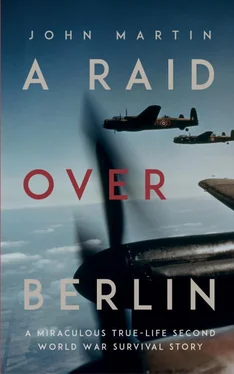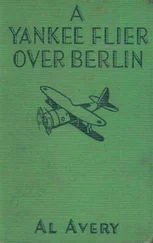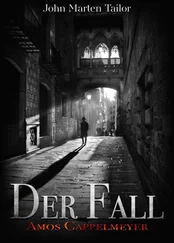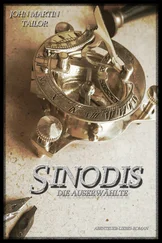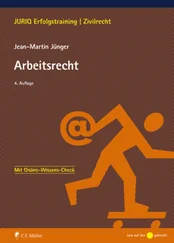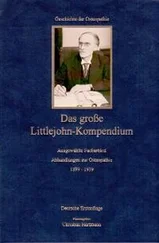Following the dance, I asked if I could walk her home. She agreed but when she told me that she lived in Sibbertoft, at least three miles away, I realised I had been presented with a problem; I did not have a car, a motorcycle or even a bicycle. Eventually, a solution was agreed: I would pedal Adelaide’s bike standing up and she would sit, legs outstretched, on the saddle. And so, in this rickshaw-manner, I took my date home.
With Adelaide and her bicycle safely returned, and our next meeting arranged, it seemed a simple enough matter to walk back to the base. But the night was dark and I soon found myself disorientated. I was in a strange environment, being more familiar with navigating the streets of London than the open countryside, and it was many hours before I finally returned to my bunk.
I eagerly counted down the days to our next meeting but I had no idea at that stage that there was competition. There was a young pilot who, like me, had just arrived at Husbands Bosworth for the Operational Training Course. I had already got to know him, and liked him. He had just come from completing his Advanced Flying Unit course at Little Rissington where Adelaide was stationed and they had already met.
At this same time Adelaide was home on leave at nearby Sibbertoft and they met up again. A “date” was made when he would call at her house in the village. In the meanwhile she met me at the dance and, forgetting her previous engagements, invited me to visit her◦– same day, same place.
When her mother heard about this she was very concerned, but it all worked out well. I got there first and had a very pleasant walk in the woods with Adelaide while the young pilot, arriving later, was treated to a good night out at the village pub and was enjoying talking to her father when we arrived back. There were no hard feelings; in fact we kept in touch, remaining friends for many years.
That young pilot was also shot down during the Berlin raids and suffered very badly from frostbite.
Having chosen me, eventually, due to our individual postings future meetings were few and far between and we had to content ourselves with conveying our feelings for one another through exchanges of letters; there were no mobile phones, of course, and any phones available at RAF stations for social use were so much in demand that it was impossible to pre-arrange a call.
We both realised that we may have to wait for the war to run its course before our relationship could develop, as there were no certainties in love, especially if your bloke was preparing to fly in a bomber over Germany◦– prophetic thoughts indeed.
*
Having completed my training at Bosworth I was posted to a conversion unit where the crew learned to fly four-engine planes: Halifax, Stirling and Lancasters. Here we joined up with the mid-upper gunner and the flight engineer. In January of 1944 we relocated to an operational base called RAF Kirmington, in Lincolnshire, where the war was about to get very real for myself and my aircrew as we were to embark on operation flights in a Lancaster bomber.
Even today, catch sight of one of the two remaining airworthy Lancaster Bombers (as far as I am aware there is only one airworthy Lancaster in the UK, the other is in Canada) heralded by its four Rolls-Royce Merlin piston engines◦– I was once told by a jet pilot, one of two people who were working with the Lancaster that would become part of the Battle of Britain memorial flight, that he talks to his engines. Each one, he said, has its own individual character◦– and you will gaze on in awe of this breath-taking instrument of war. To many, it is a true icon of the Second World War, having earned its reputation the hard way as the RAF’s principal heavy bomber during the latter half of the conflict◦– but I have to say there were plenty of other bombers, such as the Wellington, Halifax and Stirling, that did exceptional jobs and, in my opinion, never received the credit they deserved.
Having praised the Lancaster, I must confess that our first one, AS-S2, was nothing to write home about, having gone through the mangle a number of times. It was the oldest most battered thing in our squadron; nobody wanted it but, as we were the new crew, we had to take it. I remember the Flight Sergeant in charge of the maintenance saying, ‘There’s no need to bring this one back.’ But we did. We flew it to Berlin; it got hit a little bit with flak. On our second mission we got hit badly by flak and it wasn’t fit to fly after that.
As a result, we weren’t supposed to fly on the night of Sunday, January 30, 1944, because we didn’t have an aircraft, but then our flight commander said, ‘The Old Man says you have to take our aircraft tonight.’ Before we went he added, ‘Don’t bend it; it’s a new one.’ He didn’t see it again. And neither did we.
Chapter 2
Shot Down in Flames
Until you actually get on an operational squadron, you don’t know what you are letting yourself in for. You see that so-and-so didn’t come back and you soon realise what your own chances of coming back are◦– and you are scared.
Figures published many years after the war revealed that of the seven-man aircrew of a Lancaster, the average number to survive after being shot down was less than two.
There was always apprehension, but it was worse for the Wing Commander’s crew who had done twenty-seven operations and were due to be rested at thirty. The stress as they waited to reach thirty missions was dreadful; they were like a group of old men. It was terrible. To make matters worse, the Wing Commander wouldn’t go on every trip◦– the top brass wanted him on the squadron for a long time, so he only flew one in three or four missions◦– and there’s his poor crew, waiting desperately to complete the full quota. To this day I don’t know whether they finished in one piece or not.
However, it doesn’t matter how many missions you fly, you never gain in confidence as you see people who had flown perhaps eighteen or twenty missions, yet the next time they don’t come back. There’s no comfort in saying, I’ve done X amount ; there’s no knowing what’s going to happen to you.
When you heard that someone you knew hadn’t come back you just had to bury your thoughts. There was no use asking what had happened because you knew you wouldn’t get an answer. That’s it; you just had to take it. The only good thing was, you didn’t have long to think about it because the next mission always came◦– if you were lucky, that is.
*
That night our target was Berlin◦– it was always Berlin. We were in the middle of what was termed the Battle of Berlin and everybody was sick to death when the target was revealed as Berlin again. The defences over Berlin were very heavy and often you had a long land flight to get there; you would never go the same route twice. Or come back the same way.
The first you know about a mission is in the morning, when someone says, ‘Operations are on tonight.’ Nobody would know where to, other than the Group Captain and Squadron Commander. The mechanics, though, could tell you whether you were going on a long or short trip, by the amount of fuel they put into the aircraft. Then, at around 14.00 hours, you are called to briefing. That’s when you know where you are going.
On that particular occasion, when they put a target map of Berlin up, everyone went, ‘Oh hell. We’re not going there again ?’ The language was something else. But there you are; you did what you were told.
*
We took off at around 17.00 hours, as it was just about getting dark. It was a long seven-hour trip and for six of them we were over enemy territory. No mission is ever just routine. The other times we went, we hit the flak as soon as we’d crossed the North Sea and got into Holland. We were under flak the whole time, and had to contend with fighters, of course. That night we had a fairly long sea crossing and then went across Denmark and came into Berlin from the north so that we wouldn’t be under flak for too long.
Читать дальше
